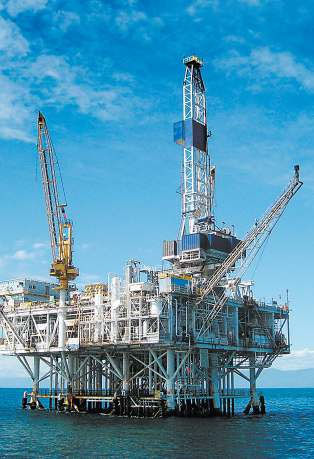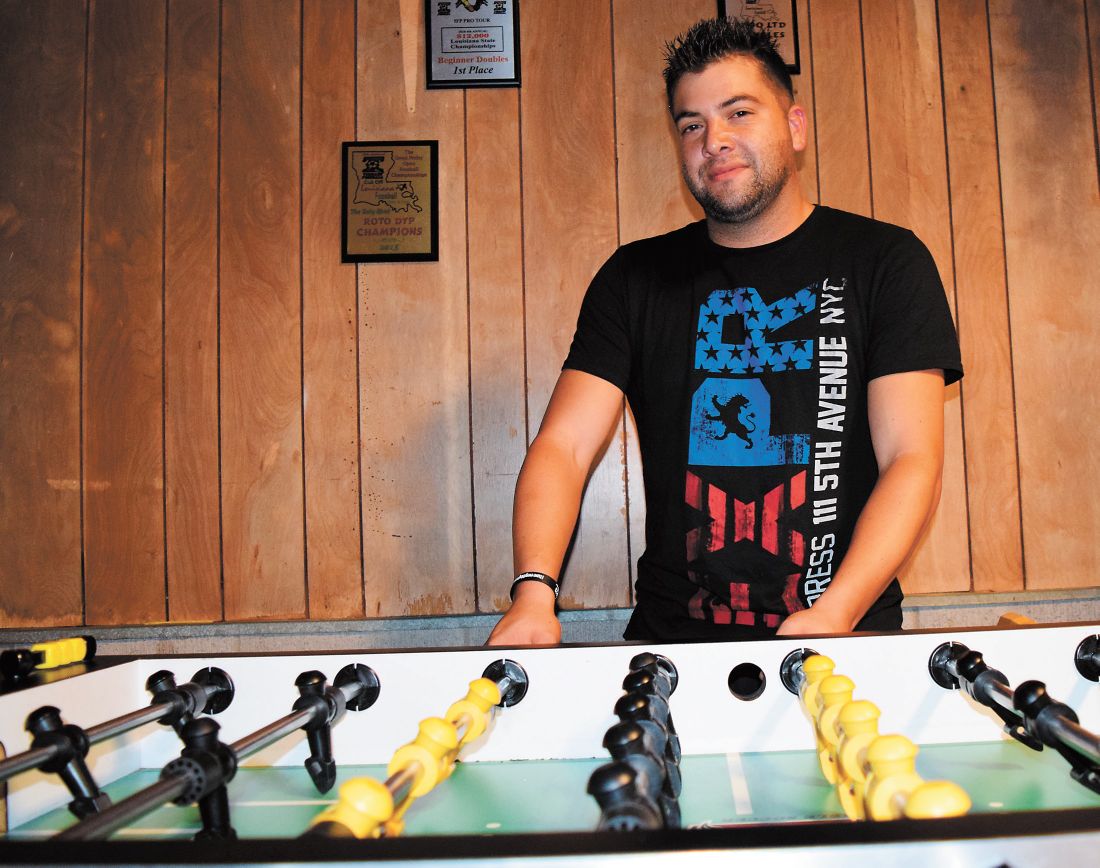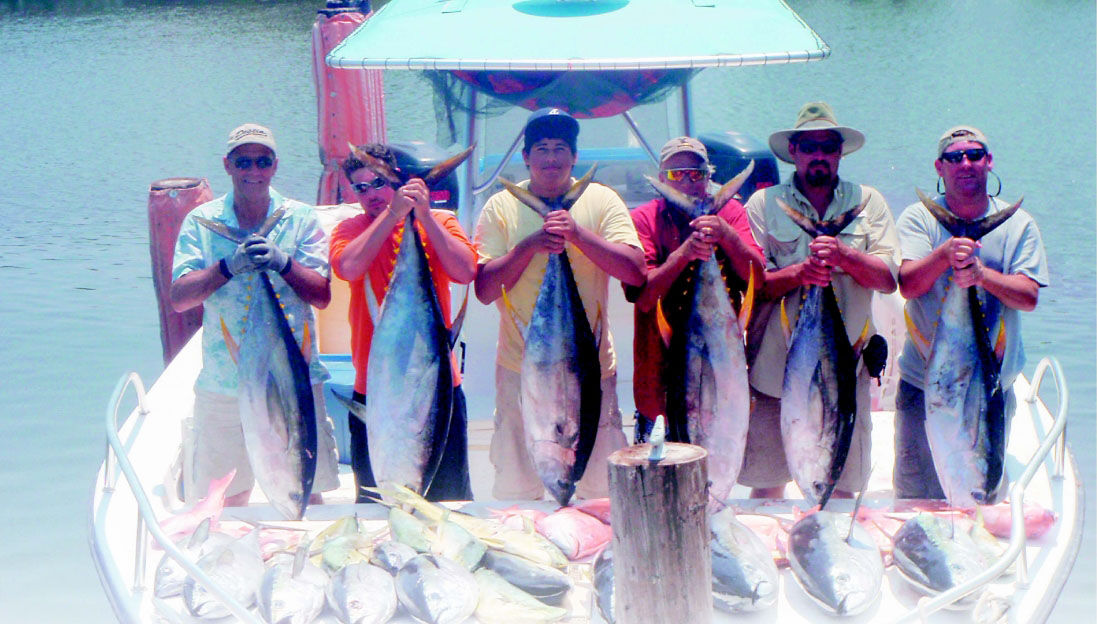
Lafourche’s Top Taxpayers
September 29, 2015
Local emerges as World Champion
September 30, 2015When the Deepwater Horizon exploded and oil started spewing up to the surface of the Gulf of Mexico, charter-fishing captains around our area watched in dismay as their 2010 season immediately went into the dumps.
But five-plus years later, captains are back on the water, customers are on the boats during the trips and the fish are biting so that fun can be had for all.
Charter captains around the Gulf South touted their pleasure with the industry’s response and resiliency in dealing with the oil spill this week, rejoicing in the fact that things are back to normal.
The captains said the entire ordeal was scary for all, but it only amounted to being a serious problem during the 2010 summer fishing season, adding that everything has steadily rebounded since then.
“I think what we learned is that the Gulf of Mexico is more resilient than we thought it was,” Captain Damon McKnight with Super Strike Charters said. “There’s no doubt a lot of oil came out, but it wasn’t enough to hurt the fishing industry – not as far as we can tell right now. The fish are tough. They’re still out there.”
“It’s going well,” said Captain Bobby Chouest with Bon Chance Fishing after a solid summer season. “The people still want to fish and the fish are still biting, so we’re not complaining. We’ve done well.”
Most captains agreed offshore fish were never impacted by the oil spewing from the Gulf of Mexico.
Captains within the field tout that they have caught the same amount of fish as they have in years past – some species in abundance compared to normal. McKnight said that even during cleanup efforts immediately after the spill, anglers would head offshore and
see fish in the water while traveling in their boats.
“Even during the spill when the oil was still spewing, we couldn’t tell that the fish were being affected at all,” McKnight said. “Looking back now, I don’t think they were affected. We couldn’t fish that first summer, but we all helped out and worked with BP, running people around and such. You could still see all of the fish. They didn’t just disappear. As long as we’ve been doing this, the one thing that’s stayed constant is this – the fish are there. They were never going to just stay there and get doused by oil. They swam to different areas, perhaps, but they were always there.”
Captain Kenny Heikamp with Bent Rod Offshore agrees with McKnight’s statement. He said the fish have been there from the get-go. The captain added that the biggest challenge has been getting people to trust in the water again.
“The people are coming back. We’ve taken plenty calls,” Heikamp said. “That was the biggest battle – perception.”
For McKnight, his summer has already wound down, but he, too, enjoyed a busy time out on the water.
“We [were] booked solid almost every day,” McKnight said. “That’s from June 1 to about Aug. 15 or whenever the kids go back to school. The people always want to get out and go fish.”
But even while the fish continue to bite, the charter fishing industry still has an elephant in the room to deal with, and this goliath is indeed directly tied into the oil and gas industry.
One challenge that offshore charter fishermen may face in the future is coastal erosion – a problem that most scientists agree is enhanced by drilling as multiple canals have been cut, which has allowed saltwater from the Gulf of Mexico to intrude into freshwater marshes. Once the saltwater interacts with the vegetation in the marshes, it kills it slowly, hence the erosion that our state has seen over the past several years.
We’ve all heard the classic statistic that Louisiana loses a football field of land every 38 minutes or so to erosion. Regardless of the exact timing of it all, our land has slowly faded into the Gulf over time, changing the way the map of Louisiana looks.
This is also beginning to slowly shape the outlook of the fishing industry as well.
McKnight said Louisiana marshes are home to many small crustacean and small fish that bigger offshore fish feed off of when they are doing their hunting. As the marshes go away, so, too does the food source for the bigger fish that charter fishermen like to catch.
McKnight said charter fishing hasn’t yet been impacted too greatly by this phenomenon, but he added that it’s coming soon. The captain added that he’s been doing this for 20-plus years, and he’s already seen some marshy areas fade to salt water.
“The fishing is not really being impacted just yet,” McKnight said. “But I think that in the coming years, I’m not sure how many years just yet, over time, the coastal erosion will be a problem. All of the marsh area is where our fish feed. The crabs, the shrimp – all of the food our fish feed on, the marsh is their estuary. The more marsh we lose, the more food we lose for these fish, as well. They work hand-in-hand. You asked about the oil spill, but to me, this coastal erosion is going to be a much bigger problem.”
As marsh fades away, McKnight said he doesn’t believe charter fishing will be destroyed, he just believes that the whole process will be different. Science shows that fish will follow their food source and will develop their schooling patterns based on where the food is.
If the marshes are gone, the fish will probably swim closer to the shore to keep their stomachs full.
“This is a game changer. It’s going to change things,” McKnight said. “It’s going to change the areas where we catch fish. It’s going to change areas where the fish go. Will they keep moving further and further inland? I’d bet so. Fish will follow the bait no matter what. That’s what they have to do to survive.
“The problem is that this all is happening so, so slowly that you can’t notice it. But over time, it’s all of a sudden going to hit us like a sack of bricks. And by the time it does that, guess what? I think it’s going to be too late.”
Charter fishing recovered after the Deepwater Horizon explosion and subsequent oil spill. But fishermen are now worried about the effects of coastal erosion on the industry.








